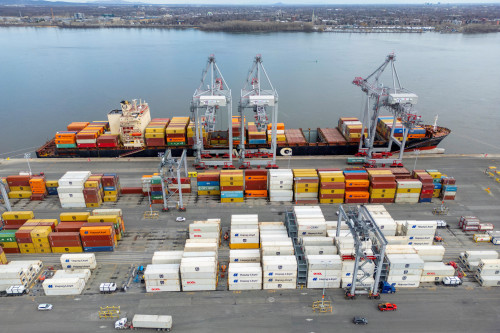By Ismail Shakil and David Ljunggren
OTTAWA (Reuters) -Meta Platforms Inc plans to end access to news on Facebook and Instagram for all users in Canada once a parliament-approved legislation requiring internet giants to pay news publishers comes into effect, the company said on Thursday.
The legislation, known as the Online News Act, was approved by the Senate upper chamber earlier on Thursday and will become law after receiving royal assent from the governor general, a formality.
The legislation was proposed after complaints from Canada’s media industry, which wants tighter regulation of tech companies to prevent them from elbowing news businesses out of the online advertising market.
“Today, we are confirming that news availability will be ended on Facebook and Instagram for all users in Canada prior to the Online News Act taking effect,” Meta said in a statement.
Facebook had telegraphed such a move for weeks, saying news has no economic value to the company and that its users do not use the platform for news.
The act outlines rules to force platforms such as Facebook and Alphabet’s Google to negotiate commercial deals and pay news publishers for their content, a step similar to a groundbreaking law passed in Australia in 2021.
The U.S. technology companies have said the proposals are unsustainable for their businesses. Google has argued Canada’s law is broader than those enacted in Australia and Europe, saying it puts a price on news story links displayed in search results and can apply to outlets that do not produce news.
The search engine giant proposed that the bill be revised to make the displaying of news content, rather than links, as basis for payment and to specify that only businesses that produce news and adhere to journalistic standards are eligible.
A spokesperson Google said on Thursday that the bill remains “unworkable” and that the company was urgently seeking to work with the government “on a path forward.”
Canada’s federal government has so far pushed back against suggestions to make changes. Earlier this month, Prime Minister Justin Trudeau said Meta and Google were using “bullying tactics” as they campaign against the legislation.
Google and Facebook had also threatened to curtail their services in Australia when a similar rules were passed into law. Both eventually struck deals with Australian media companies after amendments to the legislation were offered.
Heritage Minister Pablo Rodriguez, who introduced the bill last year, said on Thursday that the government “will engage in a regulatory and implementation process” after the legislation comes into effect.
“If the government can’t stand up for Canadians against tech giants, who will?” Rodriguez said in a statement.
The heritage ministry has had meetings with Facebook and Google this week, and it looks forward to further discussions, a government spokesperson said.
Danielle Coffey, president of the News Media Alliance global industry group, said the Canadian Parliament “should be applauded for standing up to Big Tech” after the bill’s approval in the Senate.
“We are encouraged by the increasing recognition of the need for legal action to ensure just compensation, both in Canada and abroad, and hope to see the United States follow suit,” Coffey said.
(Reporting by Ismail Shakil and David Ljunggren in Ottawa; Additional reporting by Helen Coster; Editing by Daniel Wallis, Jonathan Oatis and Aurora Ellis)








